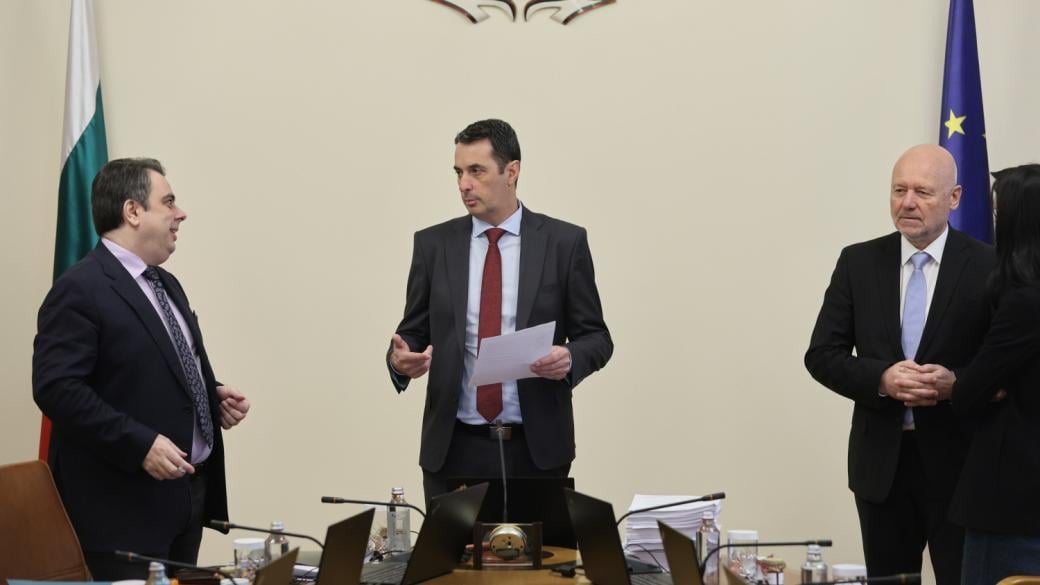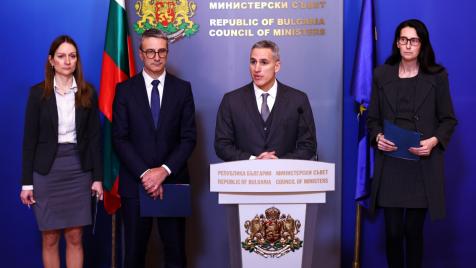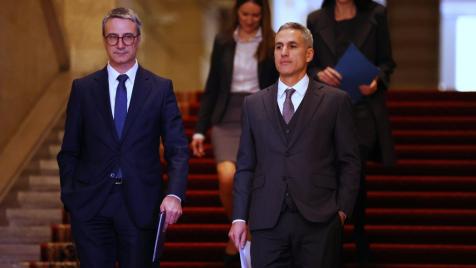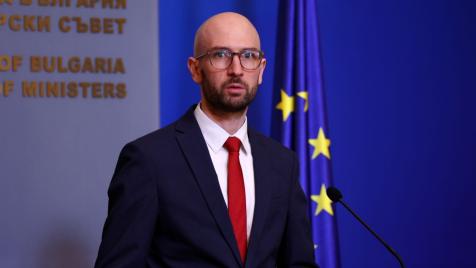New train purchase orders, under Bulgaria’s Recovery Plan, are headed for failure
One of the tenders has been terminated, and the market competition regulator has determined another one as illegal, while time is running out

© ECONOMIC.BG / BTA
The largest tender of the four launched for the supply of new rolling stock, financed under the Bulgarian Recovery and Resilience Plan, has been permanently terminated. It was meant to supply 20 single-deck electric push-pull trains, with a value of over EUR 600 million (excluding VAT). Two international companies had submitted offers but there were a number of gaps in their proposals, which becomes clear from the termination decision signed by Bulgarian Transport Minister Georgi Gvozdeikov.
More recently, the country’s Commission for the Protection of Competition (CPC) issued a decision on Škoda Transportation’s appeal regarding the procedure for 35 motor trains worth more than EUR 550 million. The antimonopoly body found the decision to grant the contract to be illegal.
The third tender – for the delivery of 7 double-decker trains worth over EUR 205 million (excluding VAT) – has been resumed after it was temporarily blocked due to a complaint by the Polish company Stadler. The Ministry has extended the deadline for submitting proposals on it until 8 January 2024.
So far, only the contract procedure for the delivery of 18 electric locomotives is half finalized. The Transport Ministry picked the Bulgarian company "Express Service" to deliver 9 vehicles for non-electrified depots. The allocated position for the other 9 locomotives for private electrified depots was terminated.
Why was the order cancelled?
The decision to terminate the tender for the 20 push-pull trains dates to 12 December, according to the Public Procurement Register. As a reminder, it was the Spanish Patentes Talgo SL and the Chinese CRRC Zhuzhou Locomotive CO that had submitted bids. The second company’s offer was almost 2 times lower than that of the Spanish manufacturer.
However, the evaluation committee found gaps in the technical offers of both companies. According to the documentation, Patentes Talgo SL did not comply with the client's requirements regarding the distance between the seats, the number of first- and second-class seats, and the delivery schedule.
A formal complaint by Patentes Talgo SL temporarily stopped the tender process. The company subsequently withdrew its complaint, and the procedure was reopened.
On the other hand, the issue with China's CRRC Zhuzhou Locomotive CO is the long delivery time - between 42 and 61 months. The Bulgarian Transport Ministry had set a delivery date of no later than 33 months from the date of commencement of contract execution.
At the moment, it is not clear when a new tender will be announced and how many proposals it will generate.
The illegal tender for 35 motor trains
The tender for 35 motor trains, worth over EUR 550 million, was appealed by Škoda Transportation AS. It was because of this complaint that the tender was paused. Very soon, however, it will most likely be definitively terminated, as the CPC finds its terms to be against the law.
The international company objected to technical specifications and requirements for proven experience laid down by the relevant department, claiming that they are discriminatory, unfounded and "result in limiting the offers and thus the options for the contracting authority to choose."
The antimonopoly authority complied with these objections. The decision can be appealed to the Bulgarian Supreme Administrative Court (SAC), but Transport Minister Georgi Gvozdeikov told Mediapool that he would not appeal it. He explained that the requirements will be cleared, and the tender will be launched again at the beginning of 2024.
Renewed order for double-decker trains
The tender for the 7 double-decker trains, with a value of over EUR 205 million (without VAT), has been resumed. It was temporarily suspended due to Stadler's complaint. On 18 December, the Bulgarian Transport Ministry extended the deadline for submission of bids until 8 January 2024, citing an order of the Supreme Administrative Court.
The judges left the complaint without consideration because a power of attorney for the undersigned lawyer was not attached and there was no receipt for the payment of the state fee, which becomes clear from a check at the Supreme Court's archive.
The Polish company was not satisfied with the explanations received from the Bulgarian Ministry of Transport. Stadler claimed that the answers were not clear, specific and comprehensive, thereby hindering participation in the tender and the preparation of a quality and competitive offer. However, the CPC disregarded the appeal.
The tally and deadlines
The bottom line is that two of the tenders have effectively failed (those for "push pull" and motor trains), one remains questionable (for double-decker trains), and the last one (for the locomotives) is half-completed. This quite logically raises the questions: Will the Bulgarian transport ministry be able to catch up with the delay in the schedule for the country’s recovery plan, and is there a risk that Bulgaria will actually lose the European funds which can help it modernize its railways?
In an interview with Economic.bg, the transport minister indicated that he hoped to have selected contractors for all tenders by the end of this year. However, it looks like his wish won't come true as there are only five business days left.
This is the second attempt that the ministry is making to implement the tenders. Previous procedures announced by the cabinet were appealed by international companies and suspended. Subsequently, they were finally terminated by Minister Gvozdeikov with reasons for omissions and inexpedient spending of funds.
However, the clock is ticking. The Bulgarian Recovery Plan stipulated that public procurement should start in June 2022. The conclusion of contracts with the selected contractors was determined for the first three months of 2023. The first train units were to be delivered in the second quarter of 2024, and the last – at the beginning of 2026.
Translated by Tzvetozar Vincent Iolov

 Gloria Hristova
Gloria Hristova 




